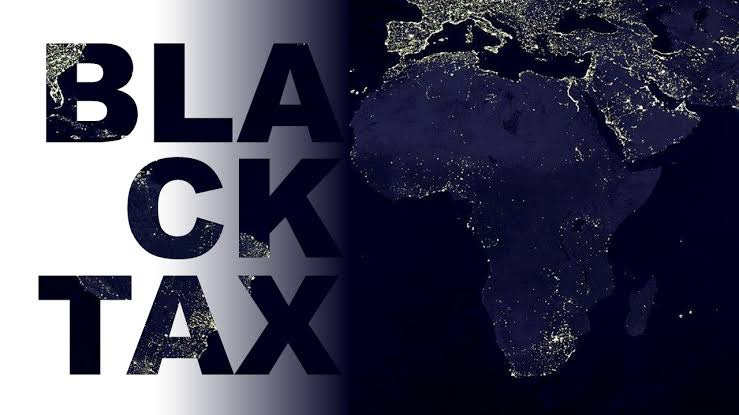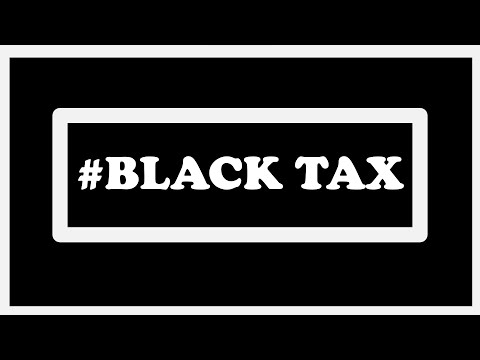Is Black Tax Driving the Rise of Digital Hustles Among Youth?
Black tax—it's a term that holds weight for many young Africans. It's not a literal tax, but the financial responsibilities placed on individuals, often the "successful" ones, to support extended family members. This phenomenon isn't new; it's woven into the fabric of many African cultures, where communal living and shared responsibility are valued. But in today’s fast-paced digital era, black tax has found itself at the intersection of tradition, technology, and the hustle culture among youth.
Understanding Black Tax
For many young Africans, particularly those from modest backgrounds, the journey of "making it" comes with an unspoken clause: lifting others as you climb. This means paying siblings’ school fees, supporting aging parents, or helping an unemployed cousin with rent.
While this is an honorable responsibility, it often creates financial strain. The dreams of owning a home, traveling, or starting a business can feel like distant mirages for those grappling with black tax. So, how are young Africans responding to this pressure? Many are turning to the digital economy, using innovation and technology to navigate these challenges.
The Rise of Digital Hustles
The digital hustle is the new frontier of economic survival and growth for many African youth. From freelancing to influencing, e-commerce, forex trading, and content creation, young people are leveraging the internet to create opportunities that previous generations could only dream of. Here's why black tax may be a driving force behind this shift:
1. The Need for Multiple Income Streams
Black tax often exceeds what one salary can cover. Many young people are realizing that depending on a single 9-to-5 job simply isn't enough. Digital hustles, which allow for flexibility and scalability, are an attractive alternative. Whether it’s creating graphic designs on Canva, running a dropshipping business, or selling thrifted clothes online, these ventures provide supplementary income.
2. Low Barriers to Entry
Digital platforms like Instagram, TikTok, and YouTube have democratized access to entrepreneurship. With a smartphone and an internet connection, anyone can start a side hustle. For those burdened by black tax, the low startup costs of digital hustles make them particularly appealing.
3. Global Market Access
Through platforms like Fiverr, Upwork, and even social media, young Africans can offer their skills to a global audience. This means earning in foreign currencies, which is a game-changer in countries with depreciating local currencies. Higher earnings mean a better capacity to meet black tax obligations while still saving for personal goals.
4. Creative Independence
Digital hustles allow young people to reclaim their autonomy. By monetizing their passions—whether it’s photography, storytelling, or coding—they find a way to balance cultural expectations with personal fulfillment.
Challenges in the Digital Hustle Era
While digital hustles offer a lifeline, they aren’t without challenges.
Burnout: Managing a full-time job alongside a side hustle can be overwhelming. Many young people sacrifice sleep, mental health, and social lives to keep up with the demands of black tax and their personal aspirations.
Income Instability: Digital hustles often come with fluctuating incomes, making it hard to plan for both family obligations and personal needs.
Lack of Resources: Access to stable internet, gadgets, and even basic digital skills remains a barrier for many young Africans, particularly those in rural areas.
Balancing Black Tax and Personal Aspirations
The relationship between black tax and digital hustles is a double-edged sword. While one drives the other, it's crucial for young people to strike a balance:
Set Boundaries: It’s important to communicate openly with family about what is manageable. Saying no doesn’t mean abandoning your responsibilities—it’s about ensuring sustainability.
Financial Literacy: Managing finances effectively can help individuals cater to black tax while still saving for their futures.
Build Passive Income Streams: Investing in passive income opportunities like e-books, online courses, or stock trading can reduce the active labor required to meet financial demands.
A New Narrative for African Youth
Despite the challenges, black tax isn’t just a burden—it is the resilience and generosity embedded in African cultures. It shapes a generation of youth who are deeply connected to their families and communities.
At the same time, the rise of digital hustles tells a story of ingenuity and adaptation. Young Africans are rewriting the narrative, using technology to build lives where they can both honor their roots and carve out their individual dreams.






